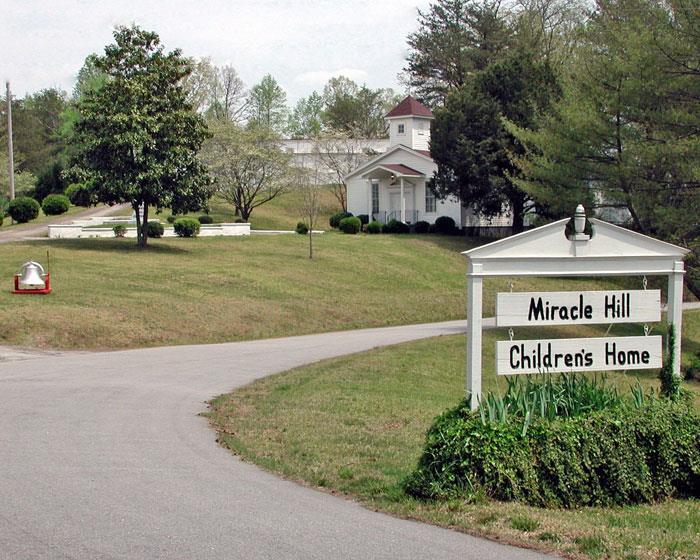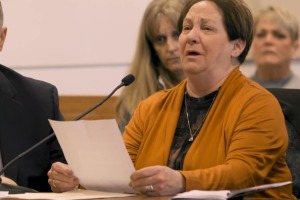Judge allows lawsuit over evangelical foster agency's exemption to HHS rule to proceed

Correction Appended
A Catholic mother’s lawsuit against the state of South Carolina and federal officials for exempting an evangelical Christian foster agency from a federal non-discrimination mandate is allowed to proceed, according to a federal judge.
Aimee Maddonna sued the U.S. Department of Health and Human Services and the South Carolina Department of Social Services in February 2019 over state funding being given to Miracle Hill Ministries. The lawsuit was filed after she claimed the agency prevented her from volunteering due to her Catholic beliefs.
Miracle Hill Ministries, one of the state’s largest foster agencies that previously only worked with Protestant Christian volunteers, was granted a waiver last January exempting it from a Health and Human Services Department anti-discrimination rule enacted under the Obama administration.
Maddonna, who is represented by the Americans United for Separation of Church and State, argues that such an exemption is a violation of the Establishment Clause of the First Amendment to the U.S. Constitution. The clause prohibits the government establishment of religion.
In an order issued Monday, District Court Judge Timothy Cain, an Obama appointee, denied in part a motion to dismiss the U.S. Department of Health and Human Services and South Carolina from the lawsuit.
The judge argued that Maddonna “has plausibly alleged that Defendants conveyed a message endorsing religion by allowing state-licensed, government-funded [child-placement agencies] to reject prospective foster parents based on religious criteria.”
Cain applied the Lemon test, a legal precedent dictating what types of relationships between governments and religious entities violate the Establishment Clause.
Under the Lemon test, governments can be tied to religious entities provided the relationship serves a “secular purpose”, does not primarily advance religion and does not foster “excessive entanglement” between government and religion.
“Plaintiff has set forth sufficient allegations that Defendants’ actions had the primary effect of advancing and endorsing religion and, thereby, violate the Lemon test and the requirements of the Establishment Clause,” Cain wrote.
“Thus, the well-pled allegations in the Complaint sufficiently assert, for purposes of this order, that Defendants have violated both the second and third prongs of the Lemon test and, thereby, set forth a claim for violation of the Establishment Clause.”
The judge did, however, grant the governments’ motion to dismiss regarding claims that they violated the Equal Protection Clause of the 14th Amendment.
“Defendants’ proffered numerous legitimate government interests rationally related to their actions permitting the use of religious criteria by faith-based CPAs,” the judge contends.
“Accordingly, Plaintiff’s equal protection claim for religious discrimination fails as a matter of law and Defendants are entitled to dismissal of that claim.”
Americans United, a progressive advocacy group, celebrated the district court order.
“We’re glad the court agreed that Aimee’s case can proceed,” Americans United Senior Litigation Counsel Kenneth Upton said in a statement.
“[W]e look forward to stopping the government from violating our country’s fundamental promise of religious freedom — that it gives us all the right to believe, or not, as we choose, but it doesn’t give us the right to discriminate.”
Miracle Hill had garnered controversy over their refusal to work with non-Protestant, gay or lesbian volunteers, while still receiving state funds.
Specifically, the HHS waiver allowed Miracle Hill to continue receiving state support so long as the Christian foster agency referred non-Christian volunteers to other agencies.
In a letter sent to then-South Carolina Gov. Henry McMaster, the HHS Administration for Children and Families explained last year that the foster agency was protected by the Religious Freedom Restoration Act.
“Miracle Hill’s sincere religious exercise would be substantially burdened by application of the religious nondiscrimination requirement,” stated the letter.
“… subjecting Miracle Hill to that requirement, by denying South Carolina’s exception request, is not the least restrictive means of advancing a compelling government interest on the part of HHS.”
Maddonna claimed in her lawsuit that Miracle Hill discriminated against her by not allowing her to volunteer through the program because she's Catholic and not evangelical Protestant.
“Maddonna clearly understood that she and her family were ineligible to be trained by or receive placements from Miracle Hill because they are Catholic,” stated the lawsuit.
“Because of the religious requirements that Miracle Hill inserts into its provision of foster-care services, the Maddonnas were prevented from becoming a foster family or even volunteering to work with foster children.”
In July 2019, months after the lawsuit was filed, Miracle Hill announced that it will expand its foster program to include Roman Catholic Christians.
Miracle Hill President and CEO Reid Lehman said in the July 2019 announcement that he and the organization “recognize our previous stance has wounded other followers of Jesus Christ.”
“Our calling as an organization is not primarily to evaluate and emphasize differences between various branches of Christianity or between denominations within Protestantism,” stated Lehman.
“Rather, Miracle Hill’s spiritual identity is first and foremost that of brothers and sisters in Christ working together to minister to the needy in Christ’s name.”
Correction: Aug. 13:
An earlier version of this article incorrectly stated that Miracle Hill Ministries was an adoption agency and that they placed children in foster homes. Miracle Hill reached out to The Christian Post to clarify that they do not do adoptions and that it is the South Carolina Department of Social Services that places children in foster homes. Miracle Hill screens potential foster parents on behalf of DSS.




























